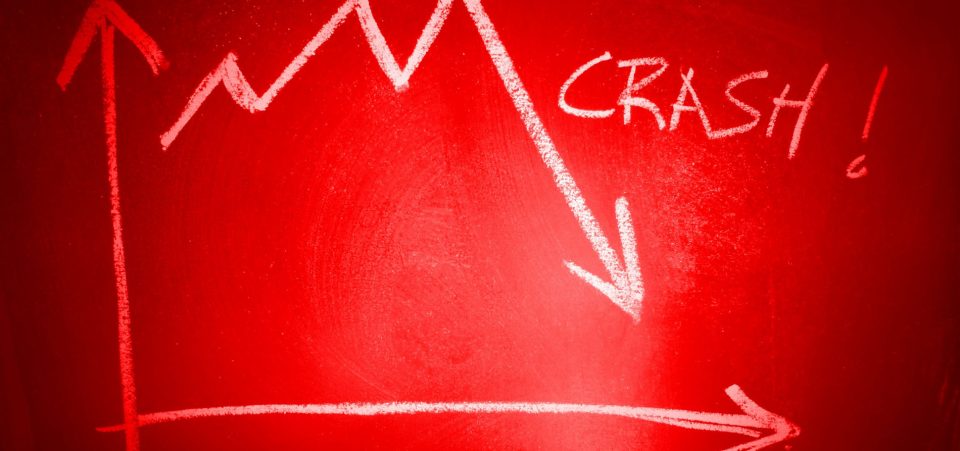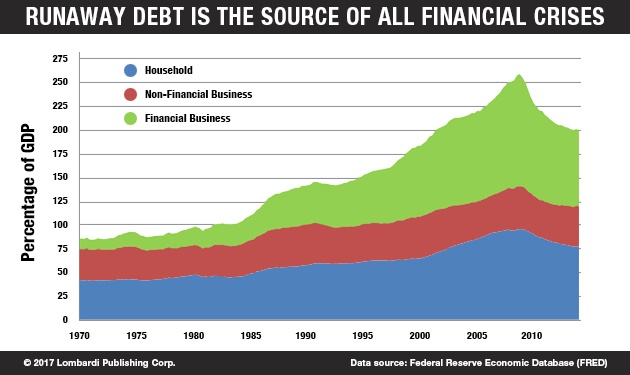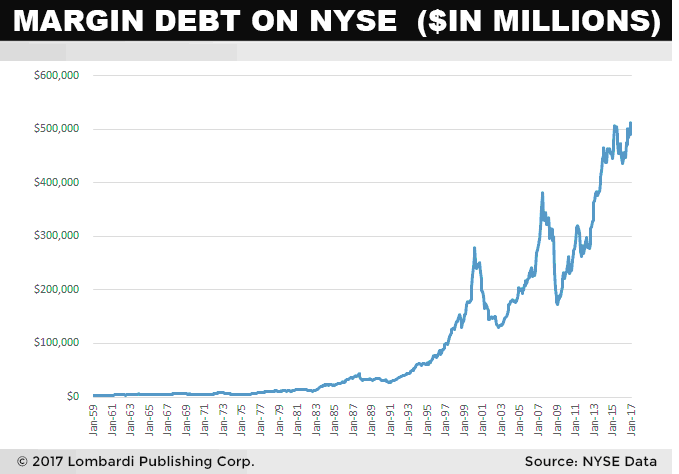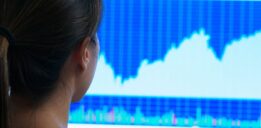Michael Burry Predictions for 2017
Michael Burry’s predictions for 2017 are rather unpleasant. Unfortunately, they may also be right, because world events appear to be heading in exactly the direction Burry expects. Burry, who runs Scion Asset Management, LLC, says we can soon expect a global financial meltdown and World War 3.
Michael Burry’s prediction for a stock market crash shouldn’t surprise anyone. Burry is the physician turned hedge fund manager who managed to make millions for himself and his clients when most people were losing their shirts in 2008.
Michael J. Burry is a neurosurgeon and hedge fund manager. He was the founder of the Scion Capital LLC fund, which operated from 2000 to 2008 and then closed to focus on his own personal investments. Burry was one of the first investors to recognize the subprime mortgage crisis.
As depicted in the 2015 movie The Big Short, Dr. Burry was one of a handful of people who saw the weakness of the markets that subprime mortgage lending had created. Burry correctly foresaw what would happen on the markets and what it would represent for the world economy: a total disaster. That’s why his opinion carries such weight now.
Michael Burry’s net worth isn’t stellar by current hedge fund manager standards. It’s estimated at $200.0 million. (Source: “Michael Burry Net Worth,” Celebrity Net Worth, last accessed May 1, 2017.)
But you should not evaluate his predictive ability on net worth alone. Dr. Burry is a rather different character than most fund managers on Wall Street or any other street. He calls things by their name without masking the risks.
Burry seems motivated, apart from his intellectual passions, by the desire to be right. He is a contrarian, yes. But, he has proven to be a successful contrarian. He wants to be right while everyone and everything around him is exploding. When in 2005, Burry noticed that housing prices were going up, even as salaries remained stagnant, he set up a hedging mechanism. It was an insurance product to protect himself and his clients in the real estate market.
They Thought Michael Burry Was Crazy
The big banks and the Wall Street moguls thought he was crazy. Burry invested several million dollars in financial products that would protect him and his investors from another Great Depression-like market crash. The trigger would be the real estate market. Now, we forget and associate real estate with risk.
But, in 2007, real estate-based products were considered to be among the safest in the market and the world. That’s what the mainstream thought. In fact, banks, according to their dystopian way of seeing reality, bought debt in the form of derivatives, failing to see the risks involved. They thought they were guarantors for a risk they considered to be non-existent.
Who would have ever expected the real estate market to fail? Michael Burry’s predictions were among the first to recognize this, along with all the associated financial “products,” as the house of cards it was. This is perhaps the worst aspect of the subprime crisis. By the time the subprime mortgage lenders realized people were no longer able to cope with their mortgage repayments, they lifted the insurance cover and the crack was total.
It was just like the stock market crash of 1929. That’s because the subprime crisis produced effects not seen since the Great Depression. It wasn’t a mere economic problem, which affected only the indebted, the subprime lenders, and the related speculators. No, the 2008 financial crisis, which Burry predicted, compromised the whole worldwide economic system.
Consumers lost confidence. The banks had compromised their liquidity and stopped lending. That killed economic growth and millions lost their jobs. Michael Burry has kept away from the limelight. Not much is known about Michael Burry’s portfolio. But from what little has transpired, it seems he has just a handful of stocks.
Burry’s Scion fund recently showed some $12.93 million in Coty Inc (NYSE:COTY). It also had 15,000 shares of Alphabet Inc (NASDAQ:GOOG), or $11.7 million. Scion also featured HCA Holdings Inc (NYSE:HCA) and Gores Holdings II Inc (NASDAQ:GSHTU). Altogether, Burry’s fund owned about $32.0 million (Source: “Michael Burry: Current Holdings and a Change of Style,” GuruFocus, December 9, 2016.)
The obvious characteristic of the Scion fund is its limited exposure to the markets. Apart from Alphabet Inc (Google), the choices suggest a low-key approach that reflects Burry’s inherent market skepticism. Famously, as shown in the The Big Short, Burry made some $700.0 million for himself betting against the irrational exuberance of the subprime-fueled bubble. He moved away to focus on water.
Evidently, the stock market outlook for 2017 is not great. Burry’s big bet is not on the markets; it’s on water. Water is tomorrow’s gold according to the one person who made money during the subprime crash. Burry doesn’t intend for you to go out and buy all the “Evian” and “Perrier” bottles you can grab. Rather, he suggests investing in fruits and vegetables, which are water intensive; they are water-rich agricultural products. (Source: “Michael Burry, Real-Life Market Genius From The Big Short, Thinks Another Financial Crisis Is Looming,” New York, December 28, 2015.)
Beware Stock Market Predictions
What is certain is that stock market predictions are rarely right, because nobody has all the information or all the intuition necessary to make them. This is especially the case considering the global implications of finance and Wall Street or U.S. markets exercise on the rest of the world. A crash on Wall Street inevitably has ripple effects worldwide.
The recent financial crisis and the Great Recession that followed has shown, unequivocally, that the markets have entered the lives of all people around the world. Not so long ago, the markets affected a handful of investors. The Great Depression resulted from the collapse of banks and the scarcity of capital to fuel growth. But the Great Depression did not affect all countries equally.
Meanwhile, the 2008 financial crash has affected everyone. Indirectly, it has also affected countries outside the international financial system. The Arab Spring, for example—the series of revolts against the dictatorships in the Middle East and North Africa—resulted from the domino effect of a slowing global economy. Europe simply stopped investing in that region after the markets collapsed in 2008.
Similarly, if World War 3 erupts, or if North Korea is attacked, it’s also a result of the financial crisis. That event altered the nature of American politics. People became more skeptical of Wall Street. Wall Street-backed political candidates—or those perceived to have its backing—are failing one after the other. Populism has been the result, and populism might lead the U.S. into a war of mass distraction. Syria or North Korea seem like plausible sacrificial lambs in that regard.
The markets have simply linked themselves to the destinies of all peoples. The main characteristic of that link might be debt. In the United States, rising national debt is one of the main problems that could prevent President Trump from adopting his tax plan. Debt is why the stock market forecast for the next three months is so dire.
The Markets Have Been Rising Beyond Control or Logic
President Trump has promised major tax cuts. He should be credited with having presented a decidedly bullish proposal. That has fueled the market bubble. Fed Chair Janet Yellen has insisted, meanwhile, on the need to lift rates to prevent the overheating of the economy.
But, is the real economy really marching that much more steadily to warrant a rate hike? Yellen, perhaps, wants to appear as neutral as possible. Suggesting a rate hike is unnecessary might give the wrong signal; it would appear bearish. A central banker will never tell you that there is a bubble. Alan Greenspan spoke of irrational exuberance but he did not go further than that. Central bankers deal with employment and inflation.
But, at this point, there’s no need for a Cassandra or her 21st century market reincarnation as Michael Burry. The wounds of the 2008 financial crisis are all too fresh. That’s because the effects are still with us, when seen from Main Street’s perspective—as opposed to Wall Street’s. This time there are many more Burry-like people on the lookout, and the problem is clear to all: debt and the related credit crunch.
Wall Street must already be betting against the markets, pointing to the coming U.S. credit crunch. One of the triggers will be personal debt—not specifically mortgages as in 2008. Shopping malls, the monuments to so-called retail therapy and one of the pillars of the U.S. economy, have lost their shine. (Source: “The Decline of the U.S. Shopping Mall,” Deflation.com, February 1, 2017.)
Debt has overtaken and it’s unlikely the financial gurus will be able to let the bubbles’ inevitable rupture occur in a “controlled explosion.” The black swan events that could trigger a market crash in the current conditions are multiple. Rather than reducing the number of crisis zones, even Trump supporters must have noticed the president has, inadvertently or not, fueled such risks.
Some of the ideas to keep the bubble rising involve easing the importance of credit reports. That would make the debt-fueled economy run a little longer. It would also make the bubble burst that much louder. The financial system has unprecedented liquidity, given the low rates in Europe and America. But, liquidity will shrink considerably as the Fed proceeds with rate hikes, raising the risk of a stock market crash.
That will reduce liquidity, increasing the risk of heavy stock price corrections. All the while, the overall global economic growth is suffering, and in such a scenario, a bubble burst will make the crash of 2008 look like a minor dip. Don’t forget the lesson of Michael Burry’s predictions.








